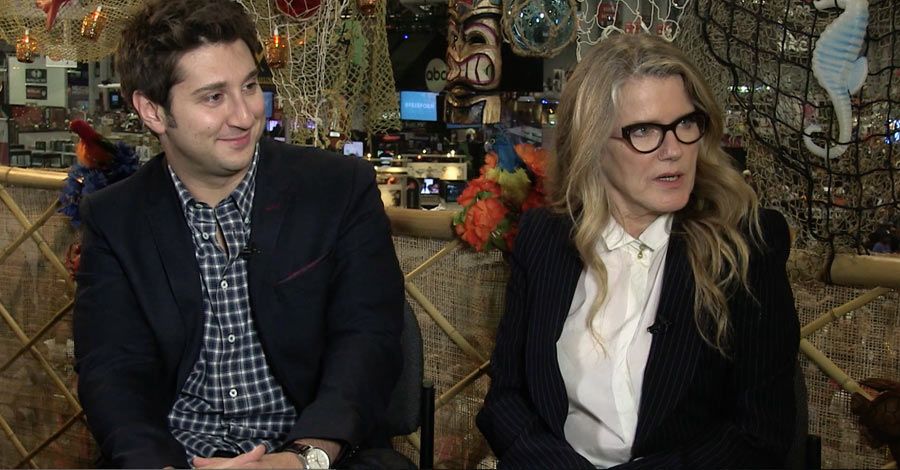If you've only seen Terry Gilliam's 2005 film "12 Monkeys," you don't actually know the full story of "12 Monkeys." Instead of a time-traveling Bruce Willis trying to convince Madeline Stowe he's not crazy and that the future is in very serious trouble, SyFy's television take on the concept finds Aaron Stanford in the role of the time traveler James Cole who is tasked by Katarina Jones (Barbara Sukowa), the leader of Project Splinter, to travel into the past and align himself with Dr. Cassandra Railly (Amanda Schull) and unstable mathematician Jennifer Goines (Emily Hampshire) to alter the timeline and literally save the world.
RELATED: Stanford, Schull & Hampshire On ’12 Monkeys” ‘Mind-Blowing’ Season Two
While you might think the premise of the series and the movie are similar -- and they are -- beyond the pilot things diverge quite radically. As showrunner Terry Matalas explained when he and Sukowa spoke with CBR TV during New York Comic Con, around mid-season the series went "pretty crazy" and never looked back.
With the show's second season arriving in April, Matalas and Sukowa discussed making their mark on the "12 Monkeys" story, why they are inspired by but not beholden to the original film, how the show has managed to craft a trio of stellar female characters and more.
On being to make their own statement on the "12 Monkeys" story as the series continues:
Terry Matalas: We deviated pretty quick, pretty fast from the pilot on just the rules of the movie and who the Army of the 12 Monkeys are. About mid-season when -- well, we really went pretty fucking crazy. We were so far away from the movie that we never felt like we were in that world anymore. Having said that, we still, even going into Season 2, there are things that we touch on like the nature of sanity plays a major part of Season 2, so we're still kind of -- we're cut from the same cloth, I think, but we're very much our own thing now.
On being challenged to go even darker places as an actor:
Barbara Sukowa: I like that, because at my age when you have done a lot of acting work, what can challenge you. You really want some meat, and the great thing is in this series I think that all the female characters are so strong and so complex. And it's amazing that these men, these young men [Laughter] write these great, deep female characters. And you never have the feeling of there are limits. That's the wonderful thing -- these characters have no limits, but they still have their own voice. Each woman has their own voice. ... They all have these unlimited possibilities which is really wonderful.
Matalas: I should say that we cast three women with Amanda [Schull], Barbara and Emily [Hampshire], too, so doing anything less would not be giving them justice, I think.
On making all of the characters living, breathing people regardless of gender or expected roles:
Matalas: That's what you hope. Any time that you don't fully explore that you end up kicking yourself, I think. For me, I never look at it as a male or a female thing, it's just what is a really great character. And we started that with Cassie [Railly] -- what happens to a 'Do No Harm' doctor who is told the world is gonna end, how do you challenge a character like that? Not necessarily a woman, but how do you challenge a doctor. Same thing with Jones, this is somebody who lost a child and has the ability to change time and save this child's life. I don't think it is necessarily about her being a mother or father, just someone who has a child. For Emily, she's just batshit, so you explore it and let it go.
Sukowa: It's also great because Cassie and Jones are both scientists and they are confronted with possibilities of thinking and confronting things that are so beyond the science they know and how to they deal with that. That's also where characters like Jennifer Goines and Jones, for example, cross. They are alien to each other in one way but they manage to listen to each other.

